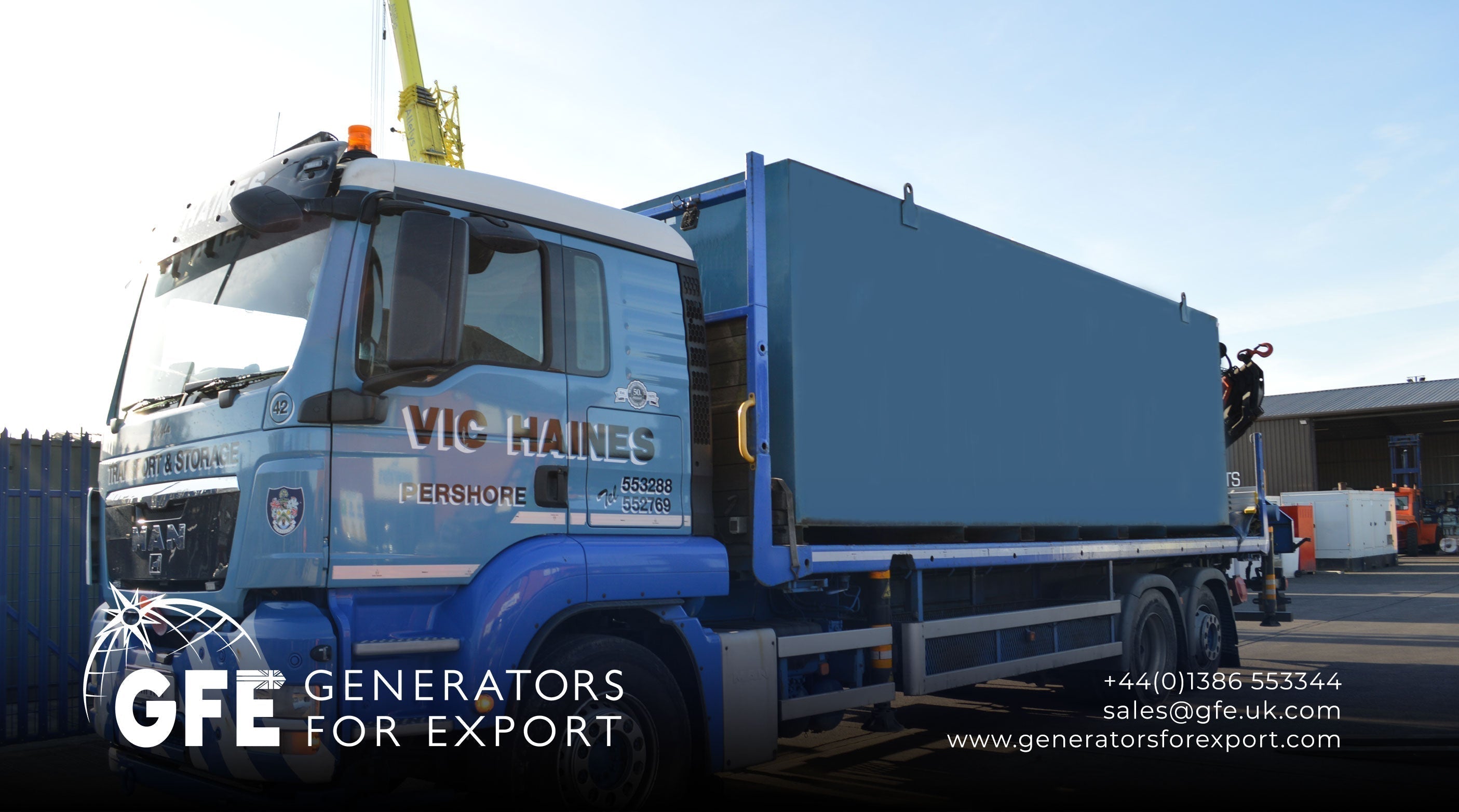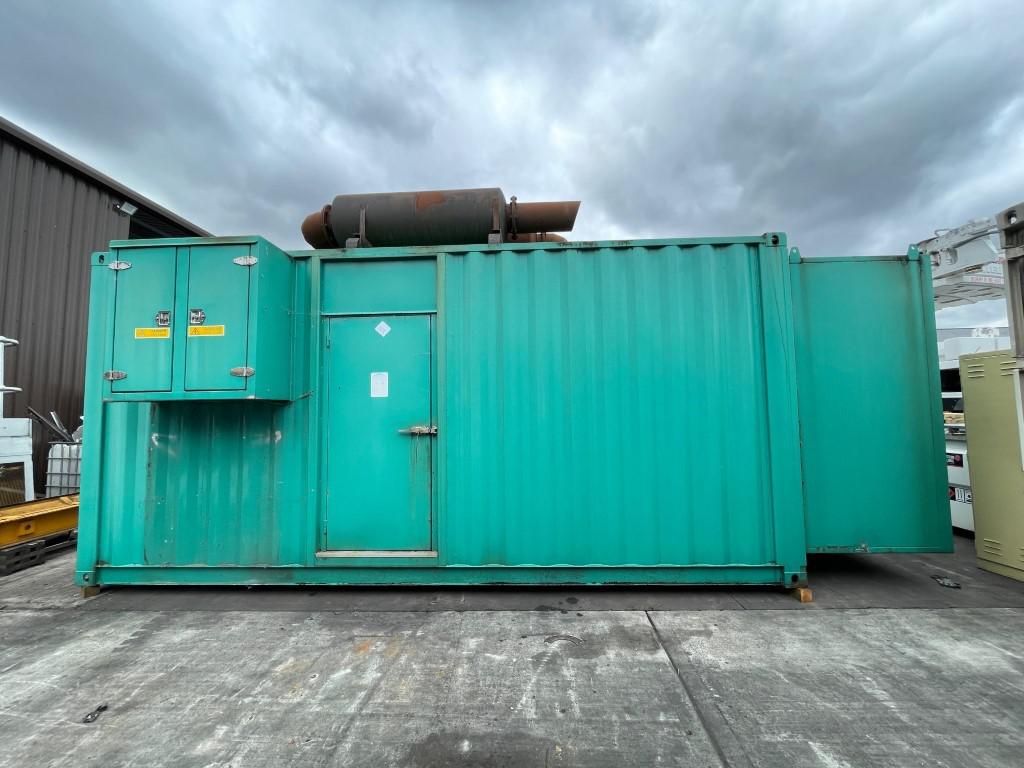When selecting a generator, one of the most crucial decisions you’ll face is choosing the right fuel type. Different fuels offer varying levels of efficiency, availability, cost, and environmental impact. Whether you’re looking for a backup power source for your home, business, or an industrial site, understanding the advantages and drawbacks of each fuel type will help you make an informed decision.
1. Diesel Generators
Diesel-powered generators are among the most widely used due to their durability and efficiency. They are particularly popular for industrial and commercial applications.
Pros:
- Fuel efficiency: Diesel engines consume less fuel compared to petrol engines, making them more economical for long-term use.
- Durability: Diesel engines are built to withstand heavy loads and long run times.
- Low maintenance: These generators have fewer components that wear out, resulting in reduced maintenance costs.
- Availability: Diesel is widely accessible, especially in regions with heavy industry or agriculture.
- Fuel Storage: Diesel is less flammable therefore easier to store.
Cons:
- Higher initial cost: Diesel generators tend to be more expensive upfront than petrol alternatives.
- Emissions: They produce higher levels of pollutants, including nitrogen oxides and particulate matter.
- Noise levels: Older diesel generators can be quite loud, though modern models have improved significantly.
2. Petrol Generators
Petrol generators are often chosen for their affordability and ease of use. They are ideal for small businesses, homes, and recreational use.
Pros:
- Lower upfront cost: Petrol generators are typically cheaper to purchase than diesel models.
- Easier start-up: They function well in cold weather and don’t require glow plugs like diesel engines.
- Widely available fuel: Petrol is easy to source, making these generators convenient in most locations.
Cons:
- Higher fuel consumption: Petrol engines burn fuel less efficiently than diesel counterparts.
- Shorter lifespan: These generators tend to have a shorter operational life due to higher wear and tear.
- Flammability risk: Petrol is highly flammable, posing a greater safety hazard.
3. Natural Gas Generators
Natural gas generators are gaining popularity due to their cleaner emissions and cost-effectiveness in areas where natural gas supply is available.
Pros:
- Eco-friendly: Produces fewer emissions compared to diesel and petrol generators.
- Lower fuel costs: Natural gas is often cheaper and more stable in price than petrol or diesel.
- Reliable for standby power: Many businesses use natural gas generators as backup power sources due to their continuous fuel supply through pipelines.
Cons:
- Limited portability: These generators require a natural gas connection, making them impractical for mobile or remote applications.
- Higher installation costs: Setting up a pipeline connection can be expensive and time-consuming.
- Potential supply disruptions: In extreme weather conditions, natural gas infrastructure can be vulnerable to damage.
4. Propane (LPG) Generators
Propane generators provide a cleaner-burning alternative while maintaining flexibility in fuel storage.
Pros:
- Long shelf life: Unlike petrol or diesel, propane does not degrade over time, making it ideal for emergency backup power.
- Cleaner emissions: Propane burns cleaner than diesel and petrol, reducing environmental impact.
- Versatile storage options: Can be stored in tanks of various sizes, making it adaptable to different needs.
Cons:
- Higher fuel consumption: Propane generators tend to use more fuel per hour compared to diesel or petrol alternatives.
- Fuel availability: While widely available, propane refuelling infrastructure is not as common as petrol or diesel stations.
- Initial setup cost: Requires installation of storage tanks and regulators, adding to initial expenses.
5. Hydrogen Generators
Hydrogen fuel cell generators are an emerging technology offering zero-emission power solutions.
Pros:
- Eco-friendly: Hydrogen-powered generators produce only water as a by-product, making them the cleanest energy source available.
- Quiet operation: Fuel cells operate with minimal noise, unlike traditional combustion engines.
- Renewable potential: Hydrogen can be produced from renewable sources such as solar and wind power.
Cons:
- High costs: The technology remains expensive to develop, install, and maintain.
- Limited infrastructure: Hydrogen refuelling stations are rare, limiting practical usage.
- Storage challenges: Hydrogen requires high-pressure tanks or cryogenic storage, making logistics more complex.
6. Biodiesel Generators
Biodiesel is an alternative fuel made from vegetable oils or animal fats, offering a more sustainable option for diesel generators.
Pros:
- Renewable fuel source: Reduces reliance on fossil fuels.
- Lower emissions: Produces fewer carbon emissions compared to standard diesel.
- Compatible with existing diesel engines: Many diesel generators can run on biodiesel blends without modifications.
Cons:
- Higher fuel cost: Biodiesel can be more expensive than conventional diesel in some regions.
- Potential fuel gelling: In colder climates, biodiesel can thicken, requiring special handling.
- Limited availability: Not as widely distributed as conventional diesel.
Choosing the Right Fuel Type
Selecting the best generator fuel type depends on your specific needs. If you require long-term reliability and efficiency, diesel may be the best option. For lower upfront costs and ease of use, petrol could be suitable. If environmental impact is a priority, natural gas or hydrogen may be worth considering. Propane offers longevity in storage, while biodiesel provides a greener alternative to traditional fuels.
Key Factors to Consider:
- Usage frequency: Standby or continuous operation?
- Location: Urban, rural, or off-grid?
- Budget: Initial cost vs. long-term expenses?
- Environmental concerns: Emissions regulations and sustainability goals?
By weighing these factors, you can determine which fuel type best meets your power generation needs. If you need expert advice on selecting the right generator, contact Generators For Export today.
Call: +44(0)1386 553344 | Email: sales@gfe.uk.com





